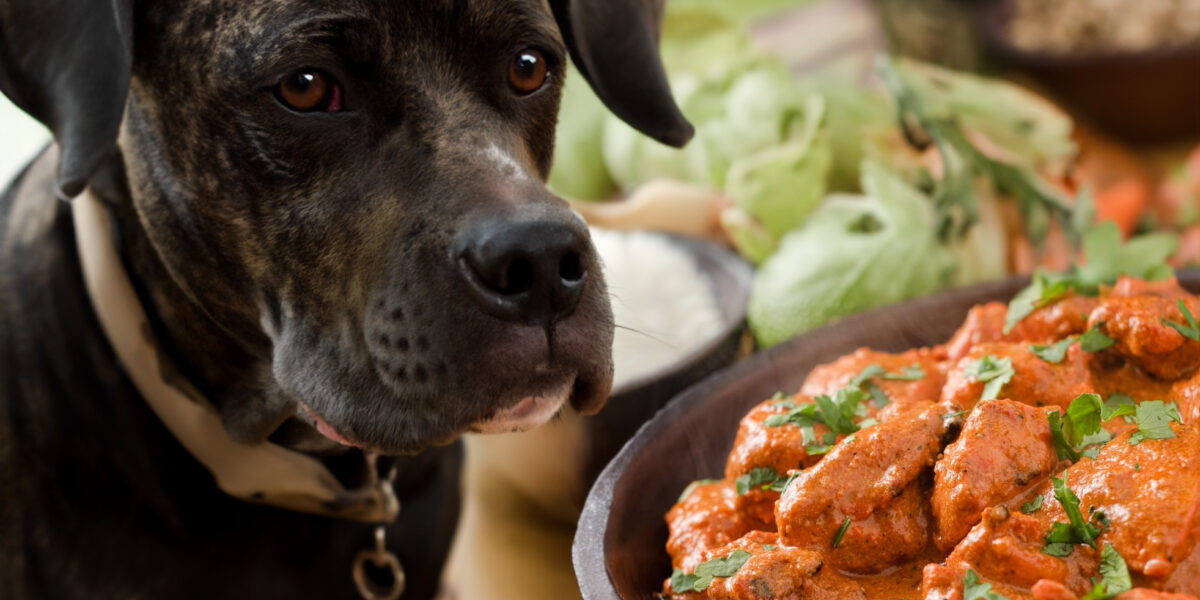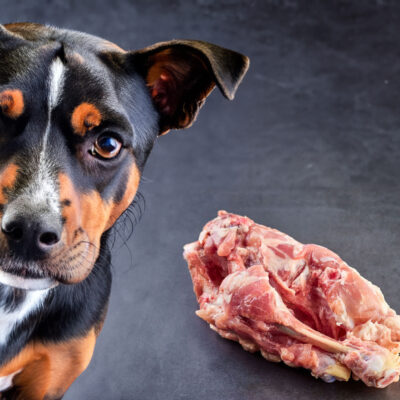Do you ever wonder what your pup is thinking when they come begging for a bite of your butter chicken? Well, if you’re like most dog owners, the answer is yes! Fortunately, there is an answer to this question – and it may surprise you! In this blog post, we’ll take a closer look at the nutritional value of butter chicken for canines, as well as the safety concerns associated with it. We’ll also provide tips for how to feed your pup safely if you decide to share a bit of your butter chicken with them.
What is butter chicken?
Butter chicken is a popular Indian dish known for its rich and creamy flavor. It is made by marinating chicken in a mixture of yogurt and spices, then cooking it in a tomato-based sauce with a generous amount of butter and cream. The result is a dish that is indulgent, flavorful, and loved by many.
Originating from the Punjab region of India, butter chicken has become a staple in Indian cuisine and has gained popularity worldwide. The dish is typically served with rice or naan bread, making it a satisfying and filling meal.
The flavors in butter chicken are a combination of aromatic spices such as cumin, coriander, and garam masala, balanced with the creamy richness of butter and cream. The chicken is tender and juicy, absorbing the flavors of the marinade and the sauce.
While butter chicken may be a delicious and comforting meal for us humans, it is important to consider whether it is safe for our furry friends. In the next section, we will explore whether dogs can eat butter chicken and what precautions should be taken if they do.
Can dogs eat butter chicken?
You may be tempted to share a bite of your butter chicken with your furry friend, but can dogs actually eat butter chicken? The short answer is no, dogs should not be eating butter chicken. While it may be a mouthwatering dish for us humans, it is not suitable for our canine companions.
Butter chicken is a rich and creamy dish that contains ingredients that can be harmful to dogs. The high levels of butter and cream can lead to gastrointestinal upset, such as diarrhea and vomiting, in dogs. Additionally, the spices and seasonings used in butter chicken, such as onion and garlic, can be toxic to dogs if consumed in large quantities.
Furthermore, the high fat content in butter chicken can increase the risk of pancreatitis in dogs, which is a painful and potentially life-threatening condition. Dogs have a different digestive system than humans and are not equipped to handle the rich and fatty foods that we enjoy.
Instead of feeding your dog butter chicken, it is best to stick to a balanced and nutritionally complete diet formulated specifically for dogs. There are plenty of dog-friendly alternatives available that will satisfy your pup’s taste buds without putting their health at risk.
Remember, it’s always important to consult with your veterinarian before introducing any new foods to your dog’s diet. They can provide you with personalized advice and guidance on what is safe and appropriate for your furry friend.
Why feeding dogs butter chicken is not recommended
Feeding dogs butter chicken is not recommended for several reasons. Firstly, butter chicken is a rich and fatty dish that can lead to digestive issues in dogs. The high levels of butter and cream can cause gastrointestinal upset, such as diarrhea and vomiting. Dogs have a different digestive system than humans and are not equipped to handle the heavy load of fats found in butter chicken.
Secondly, the spices and seasonings used in butter chicken, such as onion and garlic, can be toxic to dogs if consumed in large quantities. These ingredients can cause anemia and damage to red blood cells in dogs. It’s best to avoid feeding them any food containing these ingredients.
Lastly, the high fat content in butter chicken can increase the risk of pancreatitis in dogs.
Pancreatitis is a painful and potentially life-threatening condition that occurs when the pancreas becomes inflamed. It can cause severe abdominal pain, loss of appetite, and even organ failure.
To keep your dog safe and healthy, it’s best to stick to a balanced and nutritionally complete diet formulated specifically for dogs. There are plenty of dog-friendly alternatives available that will satisfy your pup’s taste buds without putting their health at risk. Always consult with your veterinarian before introducing any new foods to your dog’s diet to ensure they are getting the nutrition they need and to prevent any potential health issues.
Potential health risks for dogs that consume butter chicken
Feeding your dog butter chicken can have potential health risks that should not be ignored. One of the major concerns is the high fat content in butter chicken. Dogs are not designed to handle such a heavy load of fats, and it can lead to a condition called pancreatitis. Pancreatitis is characterized by inflammation of the pancreas and can cause severe abdominal pain, loss of appetite, and even organ failure. It is a painful and potentially life-threatening condition that should be taken seriously.
In addition to the high fat content, the spices and seasonings used in butter chicken can also be harmful to dogs. Ingredients like onion and garlic, which are commonly used in the dish, can be toxic to dogs if consumed in large quantities. These ingredients can cause anemia and damage to red blood cells in dogs. It’s best to avoid feeding them any food containing these ingredients to prevent any potential health issues.
To keep your furry friend safe and healthy, it’s important to stick to a balanced and nutritionally complete diet formulated specifically for dogs. Consult with your veterinarian to ensure your dog is getting the proper nutrition they need. There are plenty of dog-friendly alternatives available that will satisfy your pup’s taste buds without putting their health at risk. Remember, the well-being of your four-legged companion should always be a top priority.
What should you feed your dog instead of butter chicken?
If you’ve come to the realization that butter chicken is not suitable for your furry friend, you may be wondering what you should feed your dog instead. Fortunately, there are plenty of dog-friendly alternatives that will satisfy their taste buds without compromising their health.
One option is to prepare homemade meals for your pup using ingredients that are safe and nutritious for them. You can cook lean proteins like chicken, turkey, or fish, and pair them with steamed vegetables such as carrots, green beans, or sweet potatoes. This combination provides a balanced meal that is low in fat and rich in essential nutrients.
If cooking isn’t your forte or you’re short on time, there are also commercially available dog food options that are specifically formulated to meet the nutritional needs of dogs. Look for high-quality brands that use real ingredients and avoid artificial additives and fillers.
Another option is to explore dog-friendly treats and snacks that are designed to be safe and delicious for dogs. You can find a wide variety of options, such as freeze-dried meats, dental chews, and even homemade dog-friendly desserts.
Remember, it’s important to consult with your veterinarian to ensure that the food you choose is appropriate for your dog’s specific dietary needs. They can provide personalized advice and guidance to help you make the best choices for your furry friend. By prioritizing their health and well-being, you can still treat them to delicious meals and snacks that are safe and enjoyable for them.







